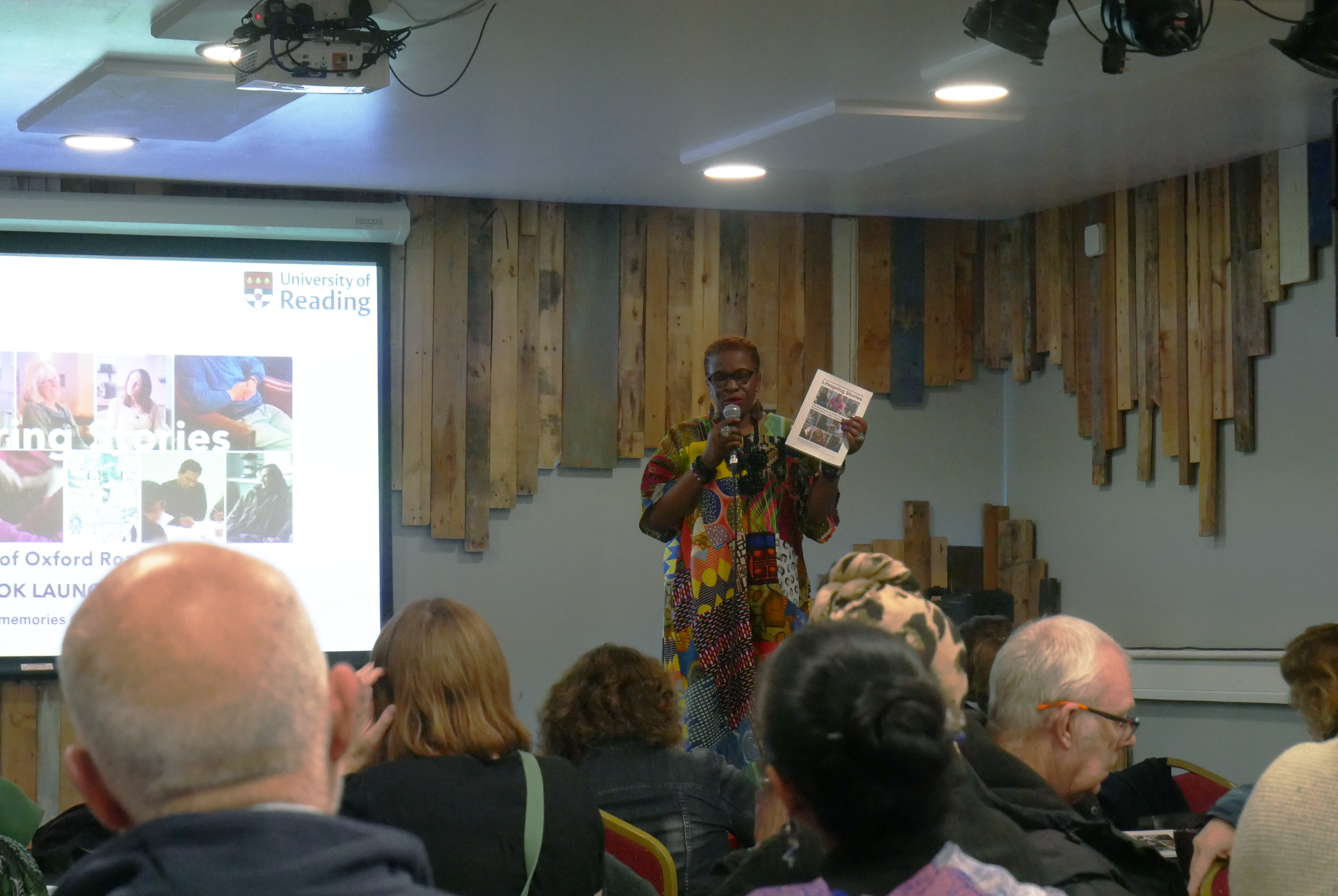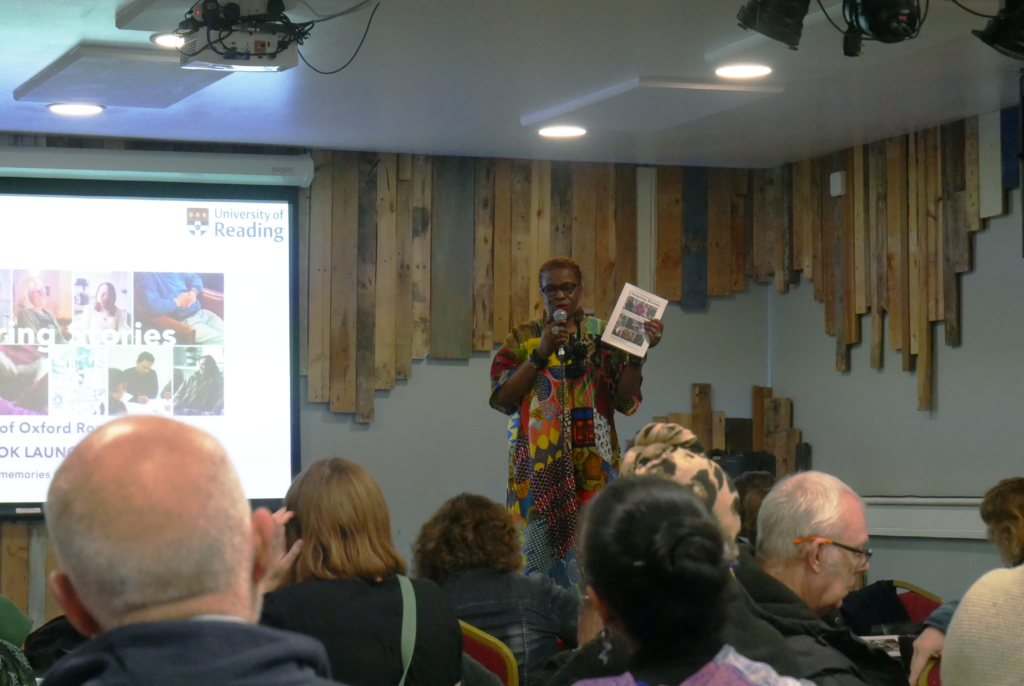Growing up Reading, I didn’t realise how strong the ‘town and gown’ divide was until I started working in the university outreach team. I left Reading for my university studies, but when I returned for work it dawned on me that I had been so ignorant of this other world on my doorstep throughout my childhood. One group of researchers is trying to break down this divide through the Oxford Road Stories Research Project: a pioneering project that utilises Participatory Action Research (PAR).
Last month, I was invited by Dr. Alice Mpofu-Coles to the launch of Lifespring Stories: the book that represents the culmination of over 4 years of research. I had heard whispers of this project, but this launch was a chance to soak in the full context of this four-year endeavour. As I listened to an array of speakers, I felt that I was there both as university staff and born-and-raised RG1 local. Despite working a stone’s throw from my childhood home, it is rare for me that both of these identities coalesce at work, but that’s exactly what this project is all about: breaking down barriers, bringing communities together and fostering meaningful collaboration.
Everyone who is from Reading knows Oxford Road. Even those of us who grew up in Cemetery Junction in East Reading know Oxford Road, with the formidable Number 17 purple bus connecting both ends of the UK’s largest town. When a friend of mine from London visited me recently, he wanted to know where the black community is based in Reading. As Dr Alice points out, Reading isn’t divided into distinct “ghettos” of ethnic minorities. Rather, a wide range of people from all over the world live side by side. I took my friend to Oxford Road to demonstrate exactly this. I was proud to show him this area and how it represents Reading’s rich diversity.
What people think of Oxford Road, however, depends on who you ask. Some will know it best from sitting its slow traffic. I can relate, and it’s very frustrating when you’re forced to creep behind the buses on Oxford Road at a snail’s pace, journeying towards Tilehurst and beyond. Others will speak fondly of its strong sense of community, as a place their family have called home for generations. Oxford Road is also the adopted home for people who have recently arrived in the country, as this research highlights. As I became more socially mobile and mixed with white middle-class circles in my teens, Oxford Road was often spoken about in hushed tones with raised eyebrows, due to the antisocial activity and crime in the area.
This research does not shy away from these subjects. Rather, the researchers frame Oxford Road as it is: “The United Nations of Reading”, richly diverse, buzzing 24/7. When engaging in community participatory research, the team adopted Lifespring Church’s phrase “Come as you are” and was led by the participants themselves. I’ve never visited Lifespring but as soon as the facade of the former snooker hall was described at the launch, I knew exactly which building we were talking about. Those steep steps are hard to miss from the bus window as you journey into the community. What I didn’t know was the incredible work going on behind these doors. The church functions as a community centre for anyone and everyone, offering English lessons, food, support and more without an ounce of judgement. At the centre of their work is an unwavering sense of community, realness, understanding, empathy and humanity.
So how can we take this further? The book launch represented an end of a chapter for this project, but also a new beginning. This kind of research works best being utilised and developed rather than sitting on the library shelf. Yes, the book will be made available around the community, but the barrier-breaking potential of this project is enormous. In my role at the University of Reading, I manage a project, an attainment-raising programme (Year 10 Reading Scholars) with 7 local schools in and around Reading. Launching in January 2025, participating students will be using literature from this project to learn vital attainment-raising skills such as conducting research, critical thinking and academic writing. Moreover, many of the students on my programme attend schools in the Oxford Road area, so this research will resonate with their lived experiences and facilitate their learning. Reading’s young people deserve to see themselves represented in universities and projects like these are one way we can break down these barriers.
This research also raises some powerful questions for the University:
- What is our role and responsibility towards the citizens of Reading?
- How can the University of Reading’s academic research benefit in the local community?
- How can the local community benefit the University?
These are questions many are already tackling in their work at the University, but there is always room for more. I would despair to think that young people today are still experiencing the University in the same way I did: a mysterious entity, thinking Whiteknights campus is closed off to the public, with little knowledge about what happens there. If we want to cease working in silos, research methods like this are the future.
Immy Lawlor, Student Recruitment and Access Officer (Reading Scholars)


